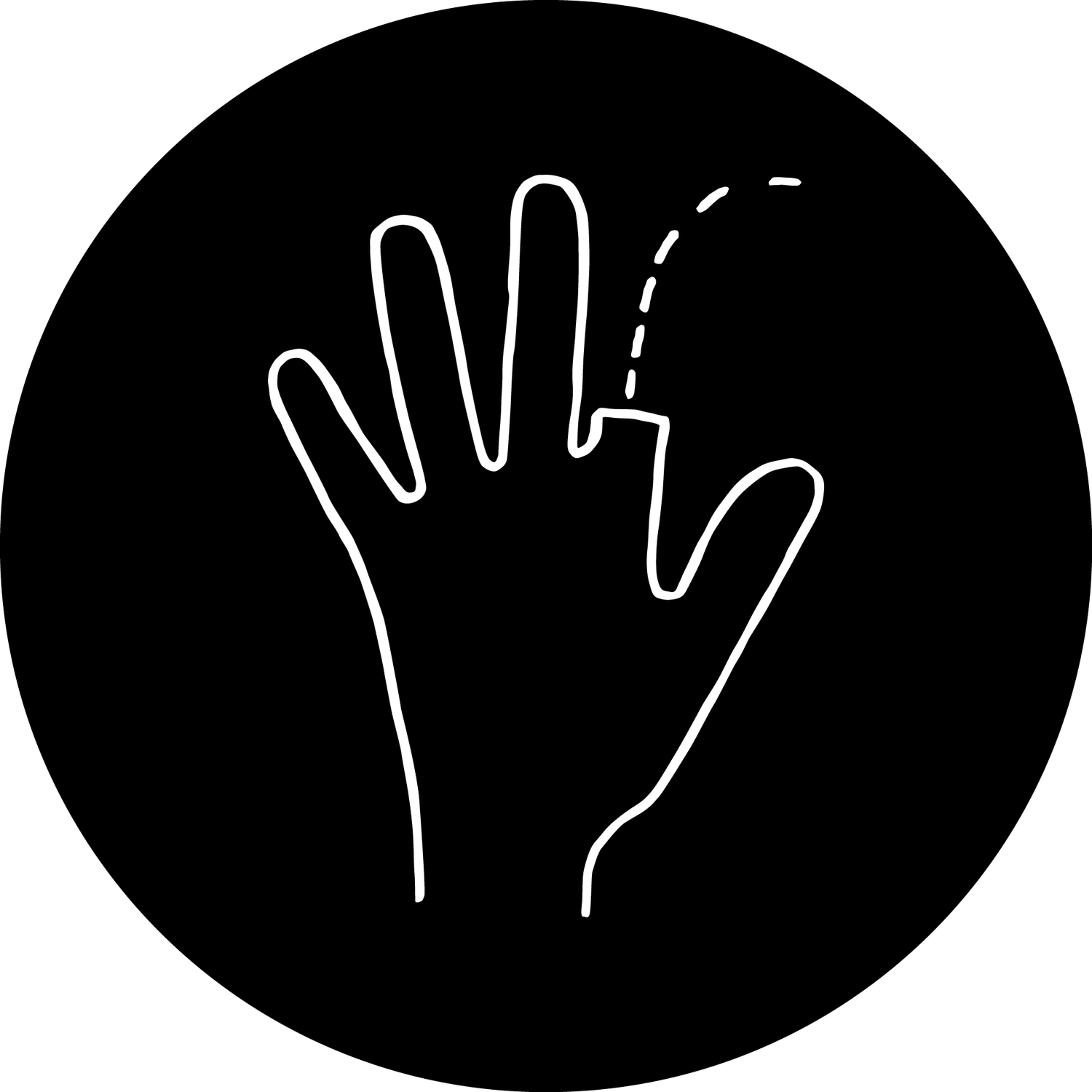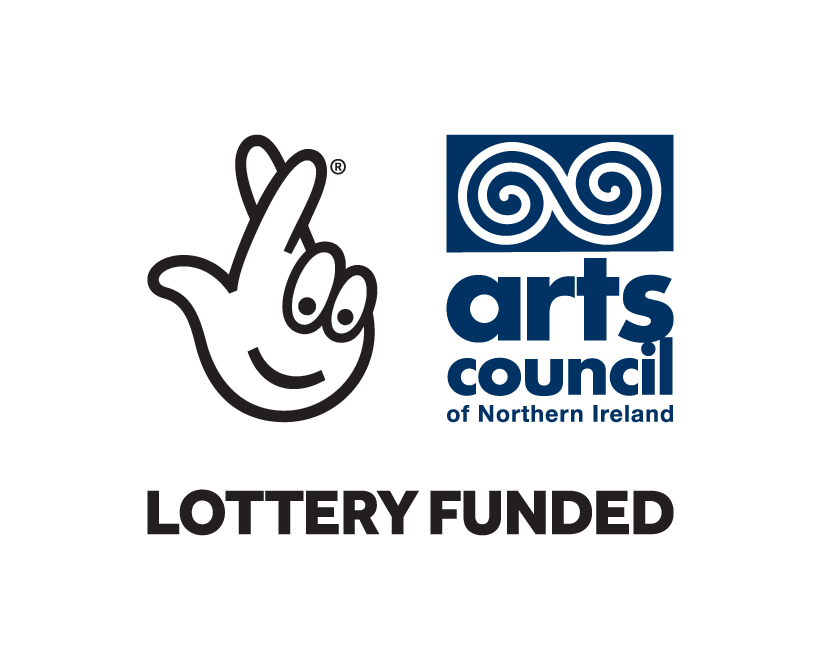Catalyst Arts
3 - 18 October 2020
How do ideas grow?
Propagate is a public programme of workshops and events initiated by Catalyst Arts which will take place during the 3 - 12 October 2020. Artists will work together with selected participants to explore ideas around collaboration, writing and performance.
This programme aims to encourage cross-disciplinary collaboration and exchange; how do we learn from one another and where do practices overlap? Through this series of events, in the gallery and at various locations, a space for dissemination and the sharing of knowledge will be created.
Artists and practitioners Kevin Breathnach, Niamh Seana Meehan, Nollaig Molloy, Suzanne Walsh and The Tangerine will lead a series of workshops for selected participants which will aim to cultivate and foster new ways of working within an art practice.
To apply to take part in one of the workshops, please send an expression of interest (max. 100 words) to catalystarts@gmail.com by Tuesday 22 September and selected participants will be notified by Friday 25 September.
There is a £10 fee to participate in one of the three workshops, Catalyst Arts is providing one scholarship (free participation) for each of the workshops for an individual who identifies as a member of the Black, Asian or Minority Ethnic (BAME) communities, please outline if you wish to apply in your expression of interest.
Please note, all workshops will be operating on limited numbers due to COVID-19 restrictions. Participants will be asked to wear a face mask and to adhere to social distancing guidelines at all times.
Workshops
1.
Cite, Nollaig Molloy
Saturday 3 - Sunday 4 October
Over a period of two days, artist Nollaig Molloy together with participants will explore practical and conceptual discussions about traditional, living and personal archives. While carrying out offsite and in-house activities, the group will create an archive of a disused site within the locality of Catalyst Arts, Belfast; paying particular attention to an area of Belfast City going through change within urban development and planning, effecting the arts and culture, heritage, housing, transport and social spaces.
With this in mind, participants will collate artefacts, objects of interest and text-based discoveries while documenting the selected site through a range of mediums. The discussions will navigate aspects and encourage conversations on: What is an archive? Why is one object/document/photograph of value over another? How is an archive built? Who decides what is preserved? All the while thinking about the subjectivity of archival material, the care and haptics of its contents and the systems of researching and working with archives.
Over the course of the workshops, the collected materials will be compiled and the group will collaborate to create a zine-style publication which will be added to the Catalyst Arts’ archive.
2.
Writing in an Art Practice, Suzanne Walsh, Kevin Breathnach and The Tangerine
Saturday 17 - Sunday 18 October
Text and Performativity - Suzanne Walsh
Suzanne Walsh will facilitate a workshop on writing in an art practice, and the different ways in which this manifests, such as art criticism, publishing and performance. Reading a text for a lecture, artist talk or performance can be transformed with some oratorical attention. In this workshop the art of public speaking and performance will be explored through playful techniques and activities. Participants will be encouraged to bring a piece of writing, or else will develop one on the day. Suzanne will present on the importance of text within her own art practice and how her writing has become cross disciplinary.
Language to Go - Kevin Breathnach
With reference to literary historical examples of estrangement from language, from Arthur Rimbaud’s ‘systematic disorganisation of the senses’ to Natalie Sarraute’s ‘jabbering half-expressed things’, this workshop will explore techniques and methods with which a writer might unlearn language—its grammar, syntax, even vocabulary—so as to write it anew, with no fixed sense, deformed to the point of beauty / ugliness.
The Tangerine
The Tangerine and Catalyst Arts present an evening of readings by poets whose practice explores the relationship between text and image. These poets expand the idea of ‘ekphrasis’, that is writing in response to visual source materials, by taking their cues from reproductions, video games, installations and other sources beside painting and photography. They also ask questions about how we engage with art, bodily, emotionally and intellectually.
This evening (Saturday 17 October 6pm) has been moved to online due to the current COVID-19 restrictions, if you are interested in attending please email catalystarts@gmail.com for a Zoom link.
3.
I seem to have been here before, Niamh Seana Meehan
Monday 12 October
This one day off-site performance workshop led by visual artist Niamh Seana Meehen will explore the shaping of language and its relationship to the landscape. Framed around Meehan’s research of Samuel Beckett, How Is It, the text will be read, decompiled and performed - and look at the ways performing text can be physical, tangible and public.
Samuel Beckett’s How It Is from a stylistic point of view is devoid of punctuation. The text(s) compile units of breath, fragmented language that should be read aloud. The units of text(s) are made up of false starts, waits, self-corrections, interruptions, pauses and repetition. The narrator's voice or voices are searching for the word that fits. How It Is portrays a sense of un-doing, having fragments of rumbled notes that Beckett invites the reader to shape.
The event will focus on the shape of the words, dissecting them, paying close attention to the muscle movement and how we shape our mouths to form the words. Our mouths will become tools, like in space they will twist and turn. Each participant will be given a pocket notebook and pen to document their process, questions or uncertainties. Voice recorders will record the conversations and reading processes. This workshop will present the participant with an opportunity to reflect, think and question reading, language and self-writing. The participant will encounter language and in their own words respond to encountering Beckett’s text. Do they hear different voices, different meanings? What does it mean to read a text? Does that change when you read it backwards? Does reading allow you to enter a space of freedom? How does that change your physical space?
This workshop will take place outside, so weather appropriate attire should be brought. Participants will be taken and delivered back to the gallery. We will provide light snacks - but recommend lunch be brought with you.
Artist Bios
Niamh Seana Meehan is a visual artist who lives and works in Ireland. Her practice is a composition of performative readings, sound, text-based installations, writing projects and conversations based on the slippages involved within the translation of thought to text. Her practice investigates the unknowability of language, the messiness of language and how language has the potential to become visual, performative and moveable. To create sub-language, metanarrative or language that spills onto the other page. Moving in and out of her own practice, she creates characters that live in spaces of self-reflection, self-reference and moments of doubt. The characters are often found standing on an edge of a line, questioning their existence.
The research component within Meehan’s practice examines specific concepts that manifest in the work of Samuel Beckett, such as; ambiguity, nothingness, uncertainty, the unknown, failure and waiting. Immersed in a pirouetting act of encountering the work of Samuel Beckett and writing characters based on the encounter. She re-read’s the characters and based on those readings, creates new characters. This self-reflective and self-referential process of working informs Art Writing as a methodology.
Nollaig Molloy is a visual artist who explores materials from specific sites, looking at their relevance in historical, social and industrial situations while also working collaboratively. She uses video, animation and sculptural installation. She is interested in the idea of a ‘material-to-hand’ and draws attention to traditional and craft based techniques in contemporary contexts. She works through modes of in-depth research and engages with formal and informal archives, environments and people from communities-of-interest. Allowing a focus on the interplay between material, people and their surroundings. She will exhibit at The MAC, Belfast as part of the forthcoming Belfast College of Art, MFA Degree Show.
Suzanne Walsh is a writer and artist from Wexford, currently based in Dublin. She uses performative lectures, audio/musical performances and text-based work to query ideas around human/non-human relationships, and consensus reality, often drawing on the scientific world as well as more esoteric sources. This work also serves as a critique of value systems, as well as testing the mutability of identity. She explores performativity and delivery through acting, vocalisation and recitation, with video, audio recordings and photography, in addition. Writing is also important, and she has published essays, reviews and poetry in publications including CIRCA, Fallowmedia, gorse journal, and Winter Papers, as well as commissioned texts by institutions and artists/curators. She has performed and shown/read work at galleries and festivals including Galerie Michaelastock Vienna, TENT Rotterdam, Phoenix Institute Brighton, IMMA, The Model Gallery Sligo, Between.Pomiędzy Poland, and she will be taking part in Tulca 2020.
Kevin Breathnach is a writer from Dublin. His work has appeared in the Dublin Review, Winter Papers, The Tangerine, The Stinging Fly, gorse, Fallow Media, Source, the New Inquiry, Granta and elsewhere. His first book, Tunnel Vision, was published in 2019 by Faber and Faber. In 2020, he released a poetry pamphlet, Morphing, with the Lifeboat Press.
The Tangerine
When the speaker in Louis MacNeice’s poem ‘Snow’ peels and portions a tangerine, they are struck by ‘the drunkenness of things being various’. The Tangerine is also concerned with ‘things being various’, and seeks to provide a space for a plurality of voices: for new creative work, thoughtful discussion, and critical engagement with culture and politics in Belfast and beyond.
In addition to providing a platform for new writers of poetry and short fiction, we publish work with a journalistic focus. We hope that by focusing on publishing long form work, we can allow our writers the scope to investigate our current cultural and political climate in depth. Our aim is to offer fresh and meaningful insights into a variety of subjects: from art to music, architecture to the environment, whether through memoir, essays or criticism.
Above all, we are eager to give emerging writers the chance to have their work published; it is vital to us that new voices are heard. We hope you’ll find something of interest between our pages. We look forward to you peeling them open.
This programme is supported by Art Fund and the Arts Council of Northern Ireland.



